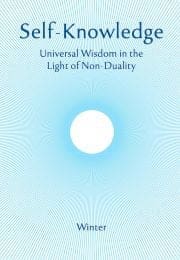Dreamless Sleep
According to the Advaita Vedanta, all our experiences take place in one of the three states of waking (jagrat), dreaming (svapna) and dreamless sleep (sushupti). These states correspond to the facts established by our own introspection. We are all conscious of waking up in the morning, and when we fall asleep at night our mind may or may not remain active in projecting dream images to engage our attention; and we know of no fourth state apart from these three.
In Western philosophy and psychology much has been written about the waking and dreaming states, but comparatively little attention has been paid to the state of dreamless sleep. The latter is in every sense fundamental, according to the Vedanta, and a great deal is recorded about it in the Upanishads and the classical writers. This article will attempt to give some idea of the traditional conception of sushupti, using the classical definitions as well as touching on related problems which are discussed by the foremost exponent of the non-dual philosophy, Shri Shankara.
Subscribe or enrol for free guest access to read all of this article and Self-Knowledge online.
Already subscribed or enrolled? Log in:


